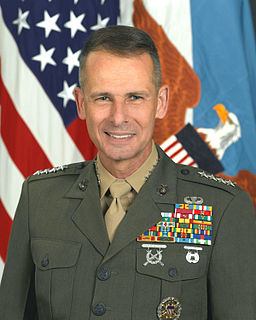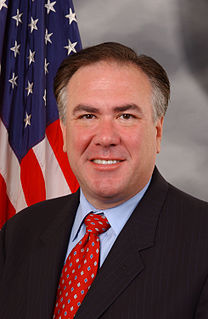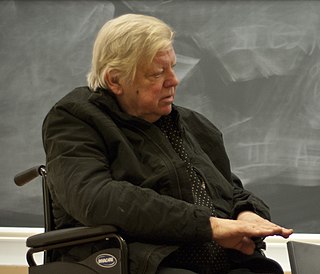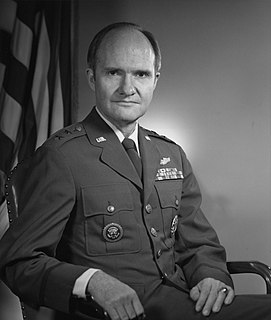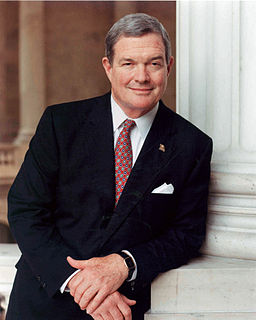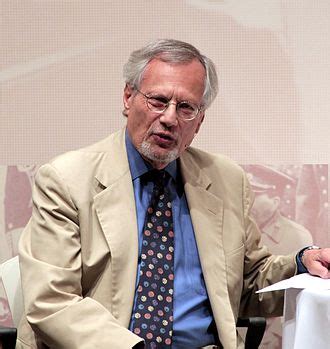Top 1200 Iraq War Quotes & Sayings - Page 14
Explore popular Iraq War quotes.
Last updated on November 26, 2024.
And when we look in through the windows, all we see are shadows. And when we try and listen, all we hear is a whispering. And we cannot understand the whispering, because our minds have been invaded by a war. A war that we have both won and lost. The very worst sort of war. A war that captures dreams and re-dreams them. A war that has made us adore our conquerors and despise ourselves.
One of my biggest regrets was the fact that as an institution and an international community we could not stop the war in Iraq. That really was very difficult and very painful. Every fibre in my body felt it was wrong. I spoke to leaders, we spoke to people, we tried... we couldn't stop it... and we see the results.
The problem is that Iran has been identified as a dangerous enemy, and the longer the media forwards that proposition - and the media is guilty, just as it was in the Iraq war - then the easier it becomes for Americans to accept that we might just have to resort to military force to remove any Iranian threat.
One of the reasons it's important for me to write about war is I really think that the concept of war, the specifics of war, the nature of war, the ethical ambiguities of war, are introduced too late to children. I think they can hear them, understand them, know about them, at a much younger age without being scared to death by the stories.
The whole importance of Iraq is that we have now created two things. One, Iraq is in the Arab heartland in terms of an attraction for people who want to fight the Americans and their allies. It's far greater than anything Afghanistan was aftertheSoviets invaded. It's easy to get to, there's no trouble with languages.
First of all, we have to say loud and clear to all those who are engaged in the fighting that attention to and respect for humanitarian needs is absolutely imperative. Anyone with any knowledge of Iraq, never mind any concern about the future, knows that the way in which the war is prosecuted has a big impact on what comes afterwards.
American mission in Iraq is clear: We're hunting down the terrorists. We're helping Iraqis build a free nation that is an ally in the war on terror. We're advancing freedom in the broader Middle East. We are removing a source of violence and instability and laying the foundation of peace for our children and our grandchildren.
We are organising our enemies into a formidable force, we are The US public has turned against the war, the Republicans and Democrats have turned against the war. And so when the American public turns against the war and the Congress turns against the war, it suggests that Americans feel we cannot win that war in those conditions. So the Iraqi Commission says, "Well, we can't win this war militarily, we need to reassess potential allies." There's Syria, there's Iran.
Shrouded by the 'dodgy dossier,' which warped opaque intelligence, none of the stated war aims in Iraq spoke to the British national interest. Illusory dreams of bringing Western-style democracy to the Middle East were punctured by failures of planning and strategy, as catalogued before the Chilcot Inquiry.
This is the nature of war, whose stake is at once the game and the authority and the justification. Seen so, war is the truest form of divination. It is the testing of one's will and the will of another within that larger will which because it binds them is therefore forced to select. War is the ultimate game because war is at last a forcing of the unity of existence.War is god.
Well, the United States has said that the disarmament of Iraq is the top priority, but we have also noted that there are many other United Nations Security Council Resolutions which are on the books, including the necessity to respect the human rights of all the citizens of Iraq that we're very interested in.
I know it is said repeatedly that I was in support of the American invasion in Iraq. It is simply not true. I was in favor of helping the Iraqis, and most specifically Ahmad Chelebi and the Kurdish leadership to set up an independent government of free Iraq. I think that would have been the right thing to do.
I said in October of 2008 that there was no proof that Iraq had weapons of mass destruction or had the intention or capability of attacking the United States. Here we are. Almost 4,700 troops died, tens of thousands injured, over a million Iraqis dead. It will cost $5 trillion in the end for the war.
If a columnist writes that something happened on a certain date, or that the government spent a certain amount of money on something, or that a specific number of people have died in the war in Iraq, to pick a few examples, it is his or her responsibility to make certain that information is correct.
It seems to me an utterly futile task to prescribe rules and limitations for the conduct of war. War is not a game; hence one cannot wage war by rules as one would in playing games. Our fight must be against war itself. The masses of people can most effectively fight the institution of war by establishing an organization for the absolute refusal of military service.
It is one of the great ironies of the American war in Iraq - was that the guys who really got the most out of it were the Iranians. And they have us to thank for that. Yeah, I mean we basically put Maliki in power in 2006, but he has been - he's really not a friend of the United States. He's a friend of the Iranian regime.











